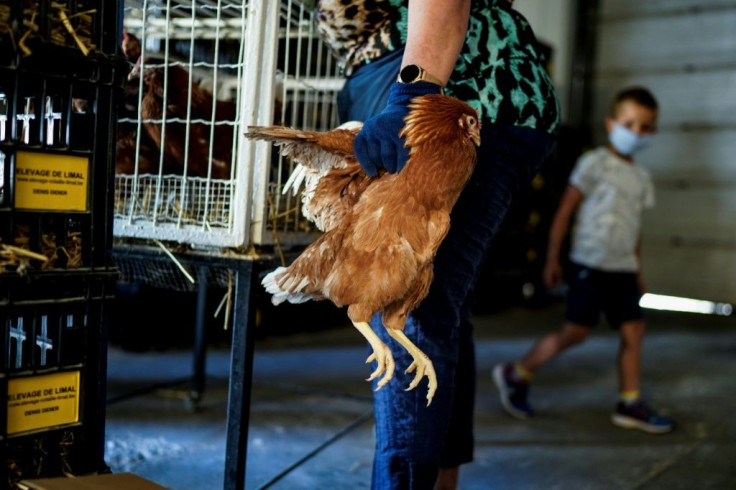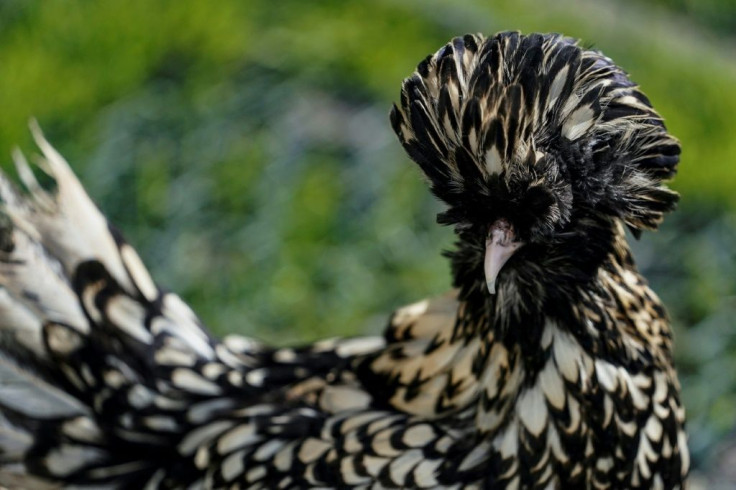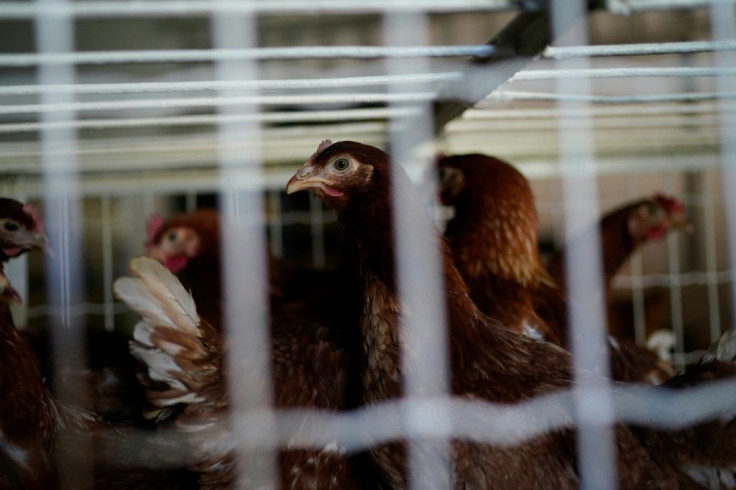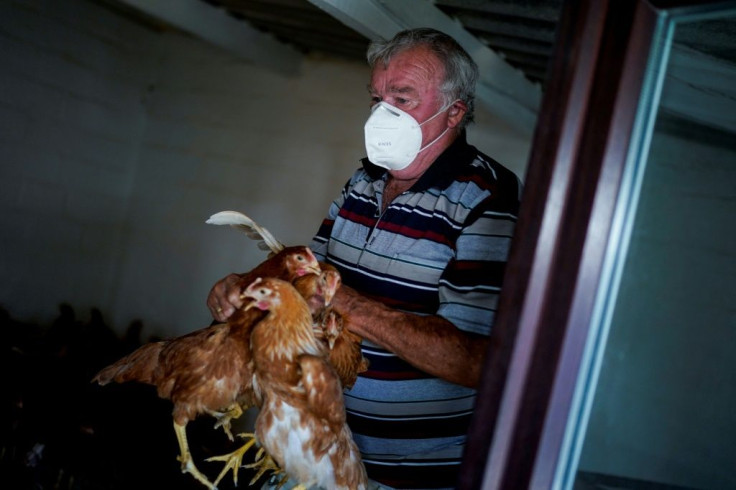Cooped Up Belgians In A Flap For Chickens

Whether it's for fresh eggs or to entertain children feeling cooped up in coronavirus lockdown, a craze for keeping chickens is sweeping Belgium.
At the Elevage de Limal farm, Martine and Christopher Denis, chicken rearers for generations, are struggling to keep up with the eggs-straordinary demand for birds.
"It's crazy!" they chorus.
The couple took over the business from Martine's mother -- known locally as "Poulette", or little hen.
Since Belgium fell foul of the virus in March and imposed a lockdown to curb free-range spreading of infection, they cannot believe how many customers they have had.
"We had the police come round one time! They wanted to know what was going on. They saw all the cars, the crowd, people on the pavement," explains Martine.
At their farm near Wavre, around 30 kilometres (20 miles) southeast of Brussels, customers are wattling through at a brisk pace one morning in May, more than a month and a half into Belgium's lockdown.

"You had some at the very start who were afraid they wouldn't have any food -- they came to get hens to have eggs," says Martine.
"Then you've got some who'd had plans for a chicken coop and since they'd stopped working (because of coronavirus) decided to take the opportunity to come.
"And now you've got people who might not be able to go on holiday and are thinking 'let's get a chicken coop, it'll keep the kids busy'."

Sophie Humblet and her husband have plucked up the courage to join the flock.
Their pen is ready, though her husband is a little disappointed to see it will still take a bit of work to treat the wood of the henhouse itself.

"My husband isn't on lockdown, he's working. I'm working from home and it's very quiet so I can take care of the little chickens," she says.
She chooses Bleu des Landes hens, with pale grey feathers and dark heads, birds that will lay and then go into the pot.
Despite rigorous research, the couple are still full of questions: does the henhouse have to face a certain way? Can the chickens get aggressive? Is it true you shouldn't eat the eggs the day they're laid?
"What's exhausting is that many of the customers are new to it, so you have to explain everything every time," Martine says.
Nancy Fernandez is back with her teenage son less than a week after buying two laying hens, this time for two ornamental birds.
Six months after swapping city life for the countryside, her enthusiasm has not waned, encouraged by her three-year-old son's new passion for a neighbour's hens.
"We'd been talking about it already but it was just an idea because with the life we have, the job, the kids -- it wasn't for now, we thought we'd do it during the summer holidays," she says.
"But because of the confinement and the fact we're stuck at home, we thought 'we're going to enjoy ourselves'."
Christopher Denis says sales have boomed.
"Normally we might sell 200 chickens on a Saturday, but now it's up to 500 to 600 chickens," he says.
Stock is running low for some breeds of egg-layers, which start at a price of 13 euros, and is almost exhausted for henhouses, which go for around 250 euros for a three to four bird model.
"For now we're keeping up, but we're hitting the start of May, it's the big boom month, the old people are coming and they're all good customers," Christopher says.
"They're taking 10, 12, 20 hens. And what's more, the markets haven't picked up yet."
© Copyright AFP {{Year}}. All rights reserved.





















